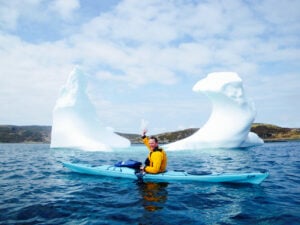Virtual tourism
During the pandemic, my son explored the dinosaur exhibits at the American Museum of Natural History. I showed my daughter masterpieces at the Louvre, and we explored Anne Frank House in Amsterdam. Lockdowns and restrictions have been a tremendous boost for virtual travel, as attractions rushed to create digital offerings to fill the void of physical visits. National Geographic launched virtual reality experiences that allow you to visit Machu Picchu and kayak alongside penguins in Antarctica. Google Arts and Culture guides you to more than 2,000 leading museums, showcasing their artifacts and allowing you to tour through the exhibits. Luxury safari lodges live-streamed game drives (see above), while virtual sightseeing tours offered 360-degree tours of major capitals, coral reefs and UNESCO world heritage sites. With tech companies making major investments in augmented and virtual reality, we may soon be able to visit anywhere we want to go, adopting an avatar to become anyone we want to be.
Inclusive travel
The earliest era of tourism belonged exclusively to the aristocracy and wealthy elite. Nobody else had the money or time to afford a grand tour of Europe. Modern travel has been greatly democratized with experiences for all budgets, but it is still catching up when it comes to diversity, equity and inclusion — in terms of the consumers who take part, and empowering the tour owners, staff and entrepreneurs who drive the industry. Fortunately, organizations such as the non-profit Travel Unity are gaining ground, offering certifications, collegiate programs and other services to ensure the future of travel engages with diverse voices and cultures, supporting and developing opportunities for those beyond the privileged elite.
Digital nomadism
Whether remote working is here to stay or continues in a hybrid form, the phenomenon of digital nomadism shows no signs of slowing down. Prior to the pandemic, digital workers were already flocking to low-cost, stable, beautiful and tech-friendly destinations around the globe. Today, #vanlife has never been so appealing to millennials, just as RVing and caravanning attracts their parents. Record sales of RVs and caravans should result in much-needed innovations at RV Parks and campgrounds, who will either adapt to appeal to remote workers or be bought out by corporations eager to capitalize on this growing market. Either way, it’s going to be harder to escape Wi-Fi, which could a pro or a con depending on your lifestyle.
Local tourism
Restrictions forced many Canadians to discover their own provinces for the first time, as government tourism agencies pivoted to spending millions of marketing dollars attracting locals as opposed to foreign or out-of-province visitors. Post-COVID, this will continue to increase interest in our abundant home-grown wonders. Despite the challenges of the pandemic, Canada’s bucket list continues to grow and thrive. As international travel resumes, many Canadians will be more than content to keep their journeys closer to home.






